Planetary Science
-
 Planetary Science
Planetary ScienceSpace simulations of 1960s focused on survival
50 years ago, space simulations focused on survival. Now, quality of life is critical, too.
-
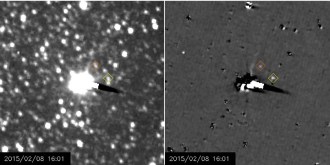 Planetary Science
Planetary ScienceNew Horizons spies two of Pluto’s moons
Nix and Hydra come into view on the 85th anniversary of Pluto’s discovery.
-
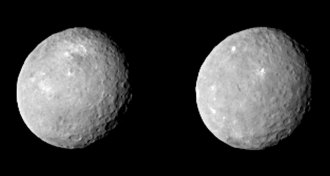 Planetary Science
Planetary ScienceDwarf planet Ceres comes into view
New images from the Dawn spacecraft reveal a landscape of craters and mysterious bright patches on the dwarf planet Ceres.
-
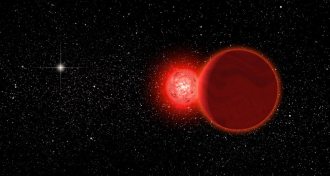 Astronomy
AstronomyPair of stars buzzed the solar system 70,000 years ago
Astronomers discover a binary system that made the closest known flyby of the sun.
-
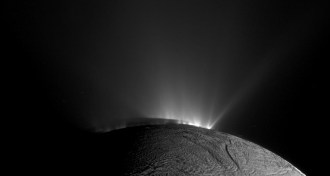 Planetary Science
Planetary ScienceEnceladus ocean may resemble Antarctic lake
The pH of a subsurface sea on a moon of Saturn resembles an ice-covered lake in Antarctica where microbial mats thrive.
-
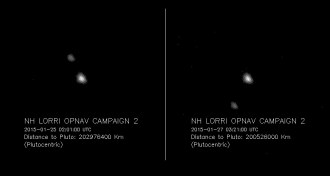 Planetary Science
Planetary ScienceNew Horizons snaps new photos of Pluto
Pluto and its moon Charon appear as two smudges in the first pictures taken since New Horizons came out of hibernation.
-
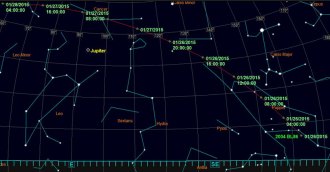 Planetary Science
Planetary ScienceLarge asteroid buzzes Earth
Asteroid 2004 BL86 swings by Earth today at three times the distance to the moon, the closest asteroid encounter until 2027.
-
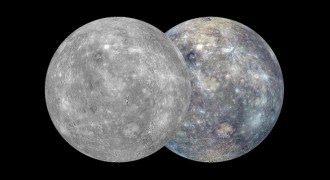 Planetary Science
Planetary ScienceDecades-old idea brought to fruition: a mission to Mercury
In 1965, engineers proposed sending a spacecraft to Mercury with help from another planet’s gravity – a technique now used in many interplanetary missions.
-
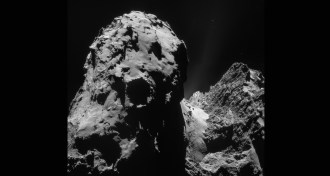 Planetary Science
Planetary ScienceRosetta reveals a complex comet
Rosetta finds diverse landscapes on comet 67P, which could provide researchers with clues about how the solar system formed.
-
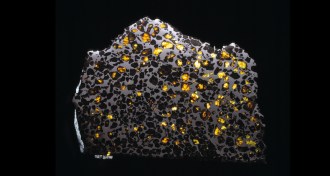 Planetary Science
Planetary ScienceYoung asteroids generated long-lasting magnetism
Pockets of iron and nickel in meteorites suggest that asteroids in the early solar system produced magnetic fields for much longer than once thought.
-
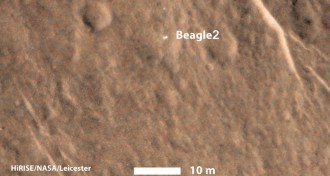 Planetary Science
Planetary ScienceMars orbiter locates lost Beagle 2 lander
The Beagle 2 lander, missing since 2003, has been found on the surface of the Red Planet in images from the Mars Reconnaissance Orbiter.
-
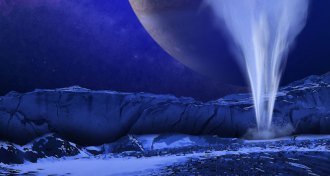 Astronomy
AstronomyEuropa’s geysers play hard-to-see
Follow-up observations of Europa failed to confirm the existence of geysers venting the Jupiter moon’s hidden ocean into space.
By Andrew Grant